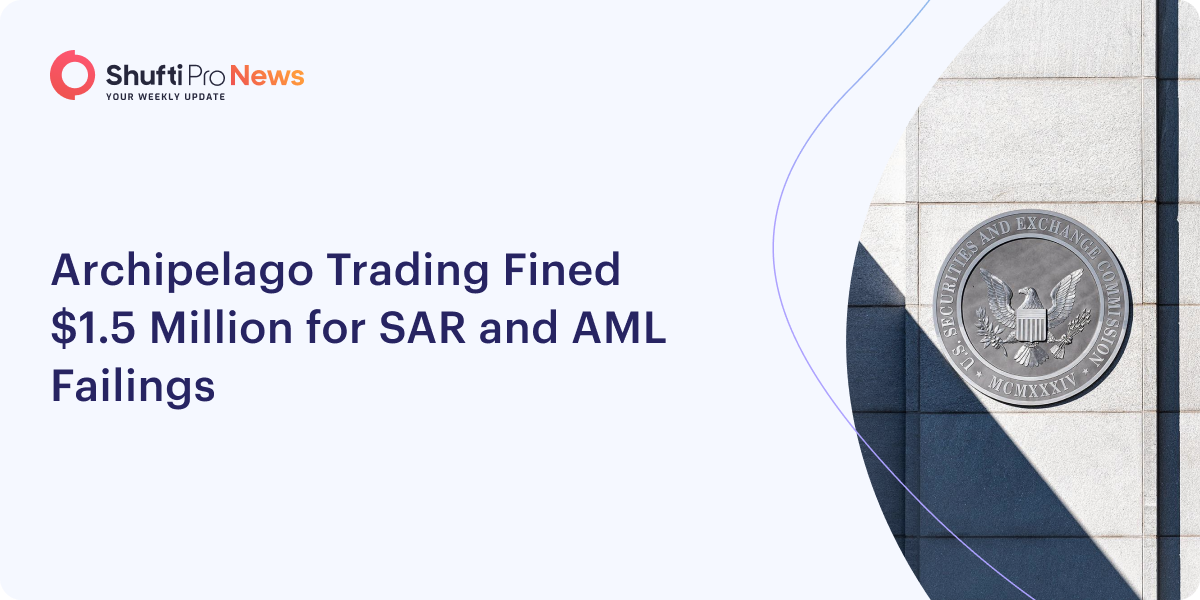Archipelago Trading Fined $1.5 Million for SAR and AML Failings

The US Security and Exchange Commission (SEC) fined the Archipelago Trading company over the shortcomings in their Anti-Money Laundering (AML) system and non-compliance with Suspicious Activity Report (SAR) regulations.
Archipelago, a broker-dealer company, had been accused by the SEC of not reporting 461 suspicious activities and using a real-time transaction monitoring system. The SEC claimed Archipelago failed to file SAR reports to authorities from 2012 to 2020. According to Global over-the-counter (OTC) and alternative security systems, the trading company did not report the penny-stock and microcap trader.
Archipelago didn’t reject any SEC findings and agreed to pay a $1.5m fine against the charges by the authorities. They accepted failure in noncompliance with SARs and not reporting hundreds of suspicious activities over 8 years related to OTC securities. According to the Bank Secrecy Act (BSA), “financial institutes must maintain records of cash purchases of negotiable assets, file reports for cash transactions over $10,000, and disclose any suspicious transactions or signs of illicit activity.”
According to the SEC, the broker reportedly did not establish an ongoing AML programme before September 2020. The SEC accused Archipelago Trading Company of possible red flags of alleged counterfeiting, layering, money laundering, not reporting suspicious activities, and planned trade.
Compliance with the AML regulations is the priority of the SEC, Financial and Wall Street’s self-regulatory body, to combat money laundering. In 2021, the SEC’s examination department released a risk alert that offered advice on enhancing broker-dealer anti-money-laundering rules and regulations. They also designed new frameworks to prevent financial institutes from money laundering and terrorist financing.
Suggested Reads:
US SET TO DISCLOSE NEW REAL ESTATE REGULATIONS TO COMBAT MONEY LAUNDERING
US FEDERAL RESERVE FINES DEUTSCHE BANK $186 MILLION FOR ANTI-MONEY LAUNDERING FAILURES

 Explore Now
Explore Now













